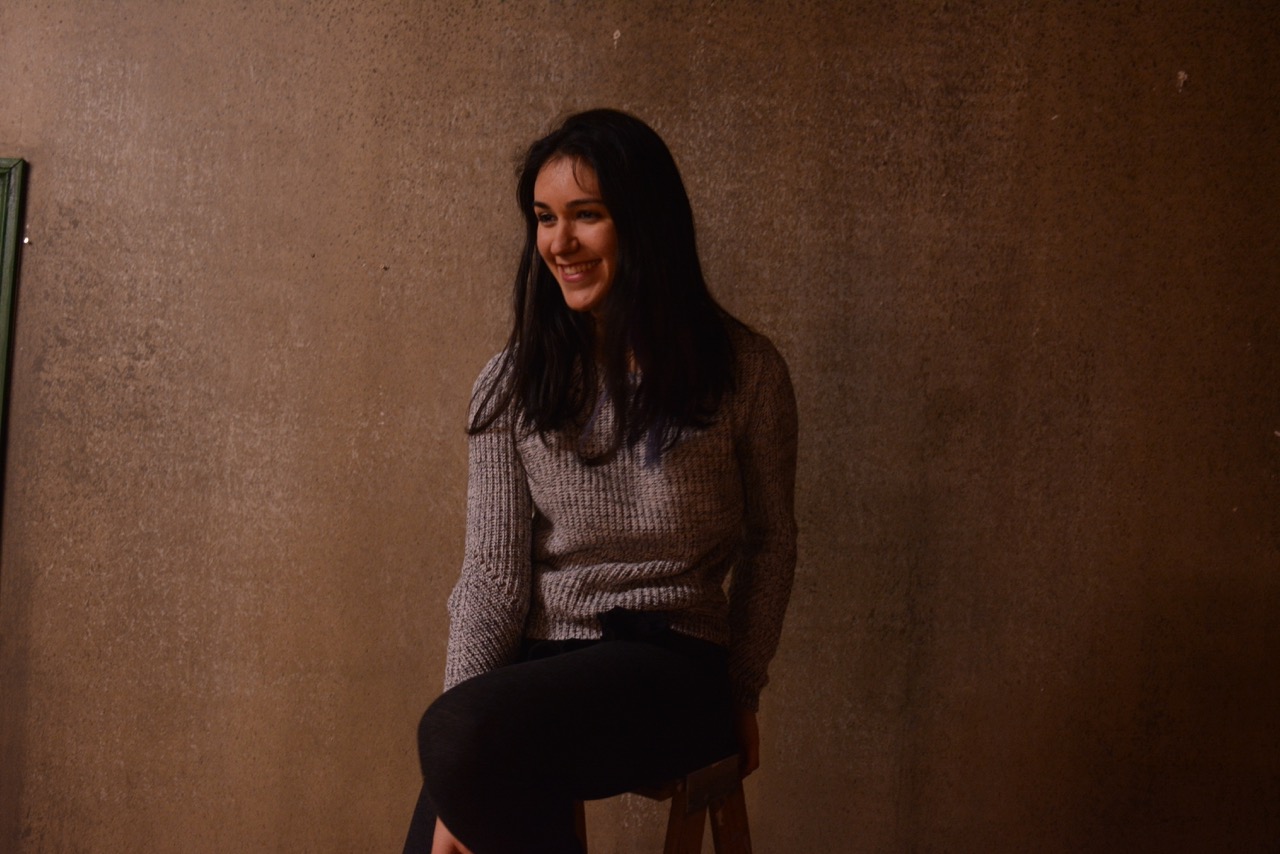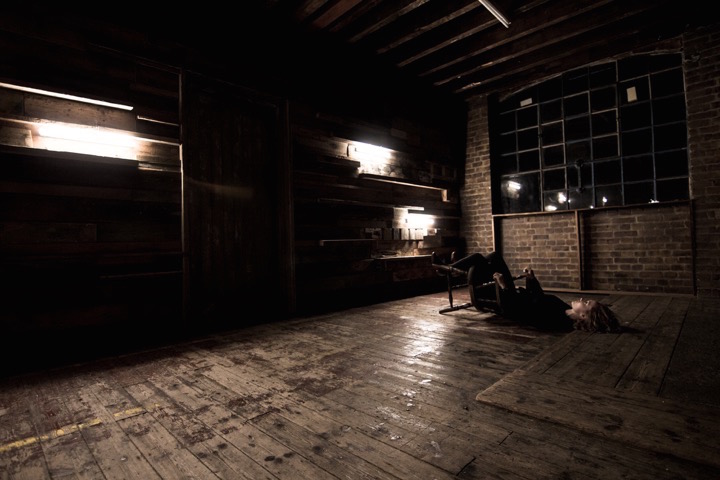JESS HOWLEY-WELLS talks to director EMILY LOUIZOU about her upcoming production Tejas Verdes.
Fermín Cabal’s 2004 play, Tejas Verdes, is ‘a haunting and compelling piece about humanity’s brutal ability to cause pain and horror.’ The play takes its name from an idyllic Chilean seaside resort adapted into a torture camp during General Pinochets dictatorship, from 1973 to 1990, and focuses on the story of Colorina, ‘one woman … who comes to symbolise the 3,000 who were violently killed’ during this time. Forty-four years after the coup that brought about this regime of terror, UCL alumna and director of Collide Theatre, Emily Louizou, brings the play back to life.
It was instantly clear that Louizou’s connection with the text was inseparable from her deep respect for the story it tells, as was her awareness of the necessity to strike a balance between theatricality and sensitivity: ‘You have to be careful with the way that you deal with texts like this in rehearsals. I never asked the actors to imagine being tortured or put them through anything physical to illicit that kind of response to the text. It’s not about feeling it personally – that would be impossible.’ Sensitivity and breadth of perspective was clearly vital in the creative process, with the team discussing documentation of Pinochet’s trial to get an even view. It is this sense of caution that Louizou hopes will be communicated to the audience. ‘We are not trying to shock them or replicate the experience of being in a torture camp, we are trying to give them the space to think and understand the importance of human rights, democracy and freedom.’ She rightly argues that our newsfeeds and papers are filled with barbaric atrocities daily, but we often feel disconnected. Presenting people with bare facts tends to provoke repulsion: ‘If you shock someone, they shut down. They aren’t going to think. … It’s not about the gory details, it’s about the humanity of it. Human beings experienced this less than fifty years ago – some escaped it, some did not. Sensitivity is crucial.’

The play is a patchwork of monologues, presenting the audience with a variety of insights into the lives of those in Chile at that time. This is what gives Tejas Verdes its humanity, what appealed to Louizou about the piece: ‘The main reason why I chose Tejas Verdes is because as a play it gives us many different perspectives on Pinochet’s dictatorship – it’s not just victims talking about their experience in the concentration camp, because history itself is not that simple. Instead we have the dictator’s lawyer defending him, supporting him, giving lots of reasons why he was a great leader. Then you have the military doctor who treated everyone, and then denied that any torture ever happened.’ This multiplicity of views ‘gives the audience the choice as to whether you want to support and defend a dictator, or say that they are important for whatever reason – or choose to see the other perspective, that they are monsters. It’s not propaganda. It has funny moments, funny characters, varied characters. It was the variety of the play that really touched me.’
Louizou’s determination to let the story speak for itself is clear as she says ‘we are treating this text as if it is a fairy-tale, something very distant and subtle, not trying to recreate the torture chambers or torture machines.’ She insists that the production does not play up to the shock-factor inherent in its content, but is ‘more drawing upon the beauty and lyricism of the text. The way it’s written is very poetic – the language is visceral but beautiful, and it provides the imagery you need to understand the characters’ experiences. We are focusing on that, rather than the harshness and brutality of it.’ The production promises to accentuate the script’s aesthetic framing of such abhorrent cruelty.
Collide Theatre formed in 2015, with a vision to create theatre with ‘bold texts and to produce work which challenges, inspires and excites both us and our audience’. For Louizou, finding spaces that complement the plays the company works on is of great importance. Victorian warehouse of 47/49 Tanner Street appropriately reflects the Tejas Verdes hotel-turned-concentration-camp, as well as enabling the immersive style with audience members ‘moving from room to room’ to follow the characters, each inhabiting ‘a separate space of her own.’ Louizou explained the coupling of piece and place, not just with Tejas Verdes but in her other productions, as an integral part of the theatrical experience she aims to create: ‘The play comes first and then the decision about whether it is going to be ‘site-specific’. Hamletmachine was a German play I directed in 2016, and it was a deconstruction of Hamlet, and as a play it’s just crazy. It’s very fragmented – they call it ‘unstageable’. It wasn’t going to work on a traditional theatre stage for me.’ It was this experience that lead Louizou to discover the kind of unconventional arena that would go on to stage Tejas: ‘I found this warehouse near London Bridge, managed by Ugly Duck, and it was just the ideal space for Hamletmachine – it was old, it was unused, it was dirty, it was brilliant. Only when I saw that, was I like let’s do it and let’s do it here.’ Though arising in a vast landscape of alternative, immersive art, the company’s creation of ‘site-specific’ theatre is not superfluous nor merely to suit a trend, but to suit the play.

Having been unaware of the atrocities that occurred under Pinochet’s dictatorship until she encountered Tejas Verdes, Louizou speaks briefly about her guilt – a guilt that many of us share as a result of our restrictive yet somewhat inevitably Eurocentric world-view and knowledge of history. ‘As a young person, I’m interested in young audiences just because a lot of us tend to turn a blind eye. We forget what is important. We haven’t lived through a major war, or a dictatorship or something that harsh’. Louizou again shows her sensibility toward such issues. ‘I was talking to my grandmother who lived through the dictatorship in Greece – she wasn’t able to listen to specific types of music, read specific books, leave the house at specific times. Your life is so limited by someone else, and that is just terrifying to me. I couldn’t understand it because I hadn’t lived it, but I want to respect the experiences of those who have – because we can learn from it. We have to.’ The contemporary significance of a play about such temporally, geographically and indeed socially alien events is surely this. ‘I would love for people to come to the play and not treat it as a historic play, like ‘oh, that happened years ago, it doesn’t concern me’ – but use it as a means to think about their selves, their world and how they can make it better.’
Collide Theatre’s Tejas Verdes is playing at Ugly Duck’s 47/49 Tanner Street on 1st and 2nd April with three performances per day. Find tickets and more information here.
Featured image courtesy of Collide Theatre.





